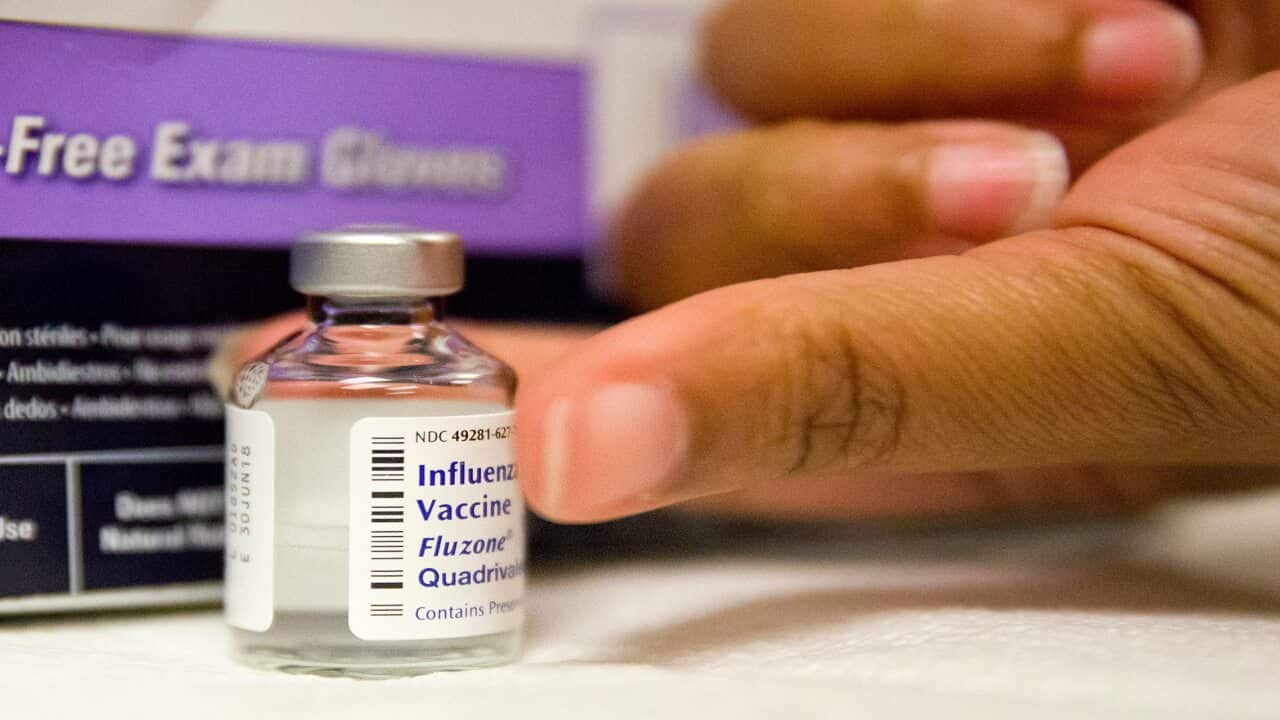Australia is waiting for about 400,000 new doses of the flu vaccine after a higher than expected number of people got vaccinated against the illness.
Health officials said they had to order in an additional 830,000 doses a few weeks ago due to heavy demand. About half of those doses have already been delivered.
Pharmacy Guild of Australia vice president Trent Twomey told SBS News officials had authorised the manufacture of two new batches of the flu vaccine.
"Each batch was in the order of about 415,000, the first batch hit the community pharmacy network last week, and the second batch is due to hit next week,” he said.
He said the Australian public has listened “exceptionally well” to advice to get the flu vaccine this year.
Six million doses of influenza vaccine were made available for free for eligible people through the federal government-funded National Immunisation Program this year.
Those eligible for free flu vaccines include Aboriginal and Torres Strait Islander people, children aged six months to five years, pregnant women, people aged 65 and over, and people with a medical condition that puts them at risk of severe influenza.
Australian Medical Association vice president Dr Chris Zappala told SBS News the “shortage of supply was particularly in the private sector, so the pharmacy supply”.
“The National Immunisation Program supply that comes free to patients through general practitioners has been relatively secure,” he said.
Dr Zappala said that as of the end of May, there have been "over 71,000 confirmed flu cases", which “far outstrips any numbers we’ve had in previous years”.
But he said just because Australia had a bad start to the year, it does not mean that there will be a surge in cases for the rest of the flu season.
“Let’s hope that everyone is fully vaccinated and we have our hand hygiene and respiratory hygiene down pat and if we do that well then this will taper off and we’ll have a good end to the year," he said.
When should people call in sick?
Dr Zappala said it’s important that people know when to call in sick.
“If you’ve got a fever, and you are coughing and you feel unwell, then the likelihood is that A. you are not going to be productive in your job, B. other people are not going to like being around you and C. you are potentially infective and give the virus to other people."
For all of those reasons, he said, people should stay home.
Share
